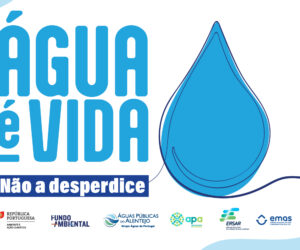 The PCP demanded that the Government complete the IP8 road, an “structuring pathway” to the Lower Alentejo, and regretted that they were spent “million” in a work whose fences today only serve to shelter animals.
The PCP demanded that the Government complete the IP8 road, an “structuring pathway” to the Lower Alentejo, and regretted that they were spent “million” in a work whose fences today only serve to shelter animals.
Within the scope of the PCP's parliamentary days, MPs Paula Santos and João Dias traveled to Figueira dos Cavaleiros today to see the unfinished works on the IP8 road, which should connect Vila Verde de Ficalho, near the Spanish border, to Sines, passing through Beja.
Announced in 2007 by the then Prime Minister of the PS José Sócrates, the work was interrupted in 2012 by the Government led by former PSD Prime Minister Pedro Passos Coelho and has been stopped since then.
Against the backdrop of an unfinished viaduct and excavated land for road construction, the parliamentary leader of the PCP, Paula Santos, considered that the state of the IP8 shows the “divestment” that has been done in the district.
Qualifying the IP8 as a “structuring pathway, that connects the coast, passing through the whole Alentejo, to the Spanish border”, Paula Santos considered to be “a waste” what, after they have been spent “million” in its construction, the work is now stopped.
“It is a way that, from the point of view of population mobility, is important, but it is also important for the transport of goods and from the point of view of both territorial cohesion, either for the development of the activity of the district”, He stressed.
Deputy Joao Dias, elected by the circle of Beja, also lamented the current state of the work, remembering that, for it to be started, were spent “million euros in expropriations”.
João Dias recalled that the route that connects Vila Verde de Ficalho to Sines “is included in the national road plan” and the goal was to have “a highway profile, with two lanes of traffic in each direction, and without tolls”, regretting that the current Government is not planning to resume work with this profile.
According to the deputy of the PCP, the executive's plan is now to build two variants – one in Figueira de Cavaleiros and another in Beringel – and use the current national roads to “lend your track” to IP8.
“We need to have two ways [the national roads and the IP8]. (…) When we talk about the difficulties we have with depopulation, because it is these elements that are structuring and decisive, to allow the population, having these services, namely these accessibility and this mobility, also allow us to have conditions to settle here”, He stressed.
Intervening after the deputies, Francisco Spark, municipal deputy in Ferreira do Alentejo, considered that the status of IP8 “shows the lack of respect for the inhabitants of Baixo Alentejo”.
“We are faced with a picture that shows, unfortunately, what was the Alentejo devoted to: this is a franciscan poverty, it's a shame, how do we intend the development of a region when we have pictures like this?”, questioned.
In turn, Jose Joao Guerreiro, who resides in the area, considered that the conclusion of IP8 would bring “great benefits” to local populations, in the time it would save for the transport of goods.
“Commuting today is an important factor in terms of time, because today's times are no longer compatible with the old days, when we rode with animal-drawn carts. Today is the automobile, are the trucks that transport the goods”, He stressed.
In addition to the importance it would have for the transport of goods, Paula Santos also added that the IP8 assumes “particular importance” in strengthening accessibility to Beja airport, as a way of “take advantage of your potential”.
Until then, the locals have already found a purpose for the unfinished works: use fences to guard livestock.
“people took advantage. How a seal was made, here there is 10 year old, then put the cattle there, at least they are sure that the cattle are inside those fences and they don't have problems with accidents”, explained José João Guerreiro, between laughs.
News: Lidador NotÃcias/ RTP/Lusa
Parliamentary Days of the PCP Parliamentary Group * Tuesday, 31 janeiro
Group 6 âAlma Rivera, alfredo maia, Peter Massano, Miguel Violante: 07:30h â Contact with SOMINCOR workers â Neves-Corvo Mine and 09:00h â Visit to the Guadiana Agricultural Cooperative â Mértola, Group 7 â Paula Santos, João Dias, Ana Serrano, Pedro Ramos, Paulo Costa, antonio vitoria: 9:00h â Visit to the cellars in Vila de Frades and 10:00h â Visit to the Talha Wine Interpretive Center and meeting with producers, Group 8 â Bruno Dias, Duarte Alves, Sara Lemos, Catarina Pinto Angelo, Post-de-Mina: 09:30h â Meeting in Ãguas Públicas do Alentejo â (Beja), 11:00h – Parliamentary Group meeting (private) and 13:00h â private lunch and 14:30h â Press Conference to present the conclusions of the Parliamentary Days with intervention by the President of the PCP Parliamentary Group Paula Santos.
























